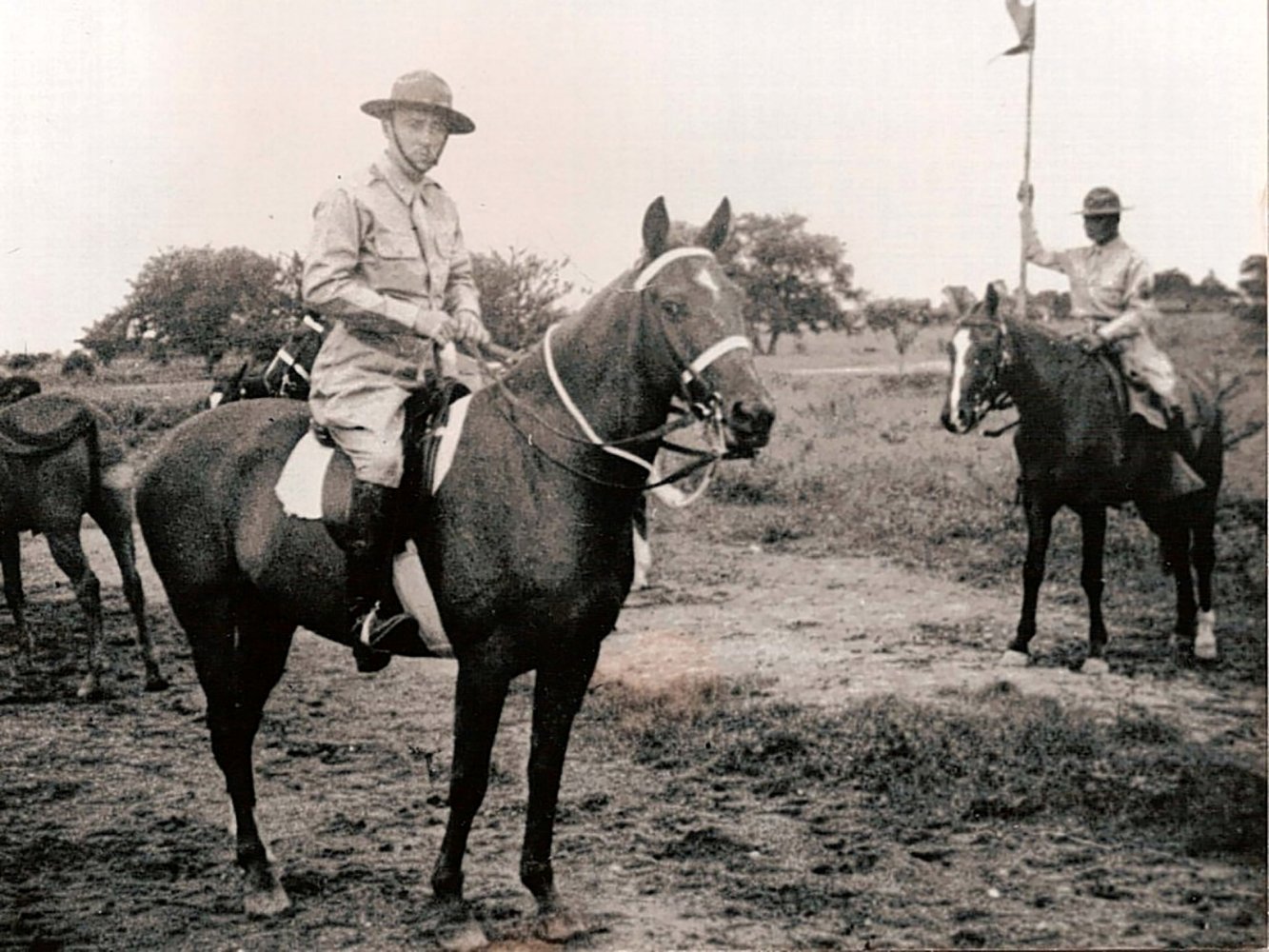January 16 in U.S. military history
1917: British intelligence intercepts a coded telegram from the German government requesting an alliance with Mexico if the U.S. enters World War I. In return for a Mexican attack on the United States, Germany would offer financial aid and assist Mexico in regaining Texas, New Mexico, and Arizona. The Mexicans decline, and the “Zimmermann Telegram” sparks outrage when published in U.S. papers, leading Congress to declare war on Germany in April.
1942: As U.S. and Philippine soldiers conduct a delaying action on Luzon Island, 26th Cavalry Regiment troopers and their Philippine Scouts spot a detachment of Japanese troops approaching the town of Morong. 1st Lt. Edwin P. Ramsey (featured image) orders what becomes the last cavalry charge in U.S. military history, which surprises and scatters the enemy.
Ramsey will spend the next three years leading a force of some 40,000 guerillas, creating such a menace to the Japanese troops that they place a $200,000 reward for his capture.
On Bataan, U.S. Army Sgt. Jose Calugas – a Philippine Scout – notices that one of the gun batteries have been disabled by enemy bombs and shelling, killing or wounding the gun’s operators. Without orders, he charges across a 1,000-yard killzone, where he organizes a crew of men to get the cannon working again and begins returning fire.
After being relieved, he returns to his normal post as mess sergeant. He is nominated for the Medal of Honor, but falls into enemy hands when the island is captured. The Japanese put Calugas on a work detail, and he secretly joins a guerilla unit and fights to liberate the Philippines. After the war, he is finally awarded the Medal of Honor and receives a commission.
1945: As the Red Army drives west through Poland and the Wehrmacht is beaten back to its positions prior to their last-ditch Ardennes Offensive (the Battle of the Bulge), Adolf Hitler enters the underground Nazi command post known as the Führerbunker. The German dictator will spend the rest of his life at the compound.
1991: When the UN deadline for Saddam Hussein to withdraw his military from Kuwait expires at midnight, hundreds of planes take off from U.S. carriers and from bases in Saudi Arabia, decimating Iraq’s air force and air defense network. Operation DESERT STORM – Saddam’s “Mother of All Battles” – has begun.

Today’s post is in honor of Sgt. David J. Chambers, who was killed by an improvised explosive device on this day in 2013 in Afghanistan’s Panjway district. The 25-year-old from Hampton, Va. was assigned to 1st Battalion, 38th Infantry Regiment, 4th Stryker Brigade Combat Team, 2nd Infantry Division.
